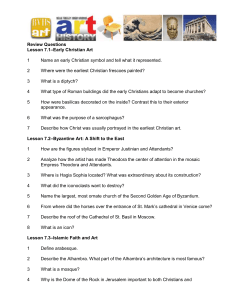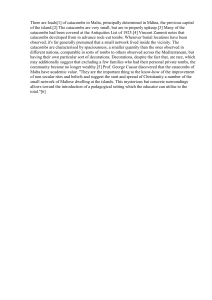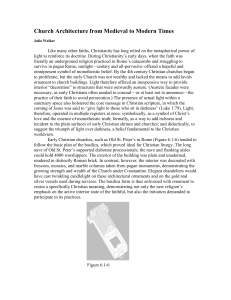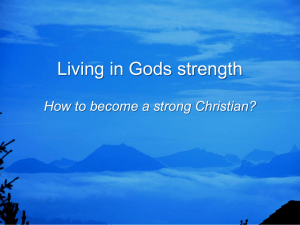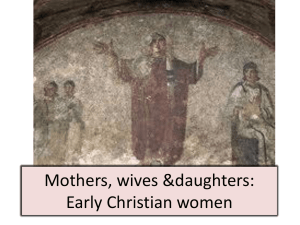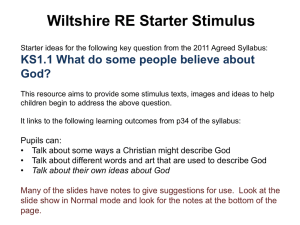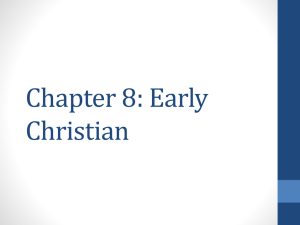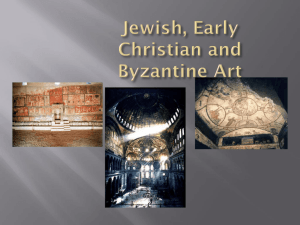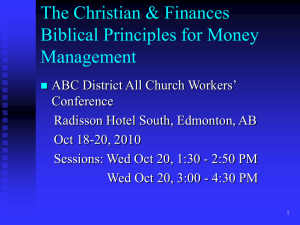Early Christian Culture
advertisement
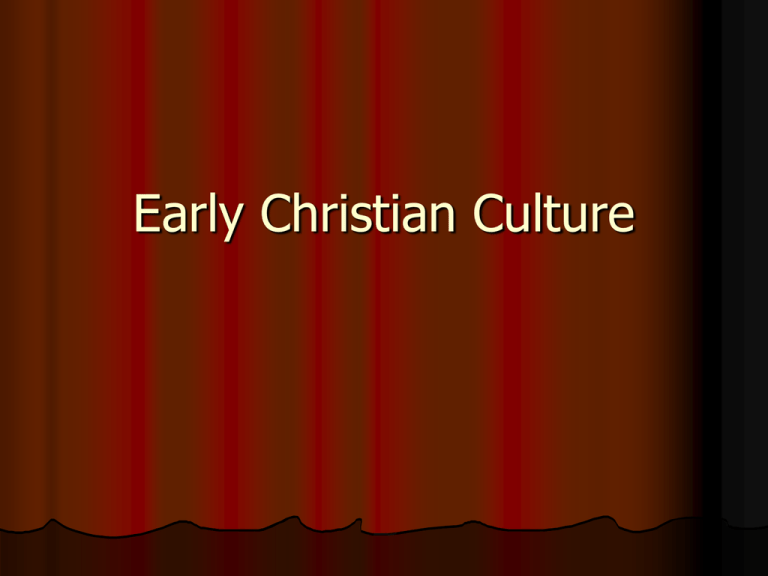
Early Christian Culture Christianity and the Arts Music Associated with paganism so banned from Christian worship Vocal music Gregorian chants Plainchant (plainsong) Monophonic until the 12th century Theater Actors could not be baptized Theater virtually disappeared until the 10th century Gregorian Chant “Alleluya, vidimus stellam” What to listen for: Monophonic texture No instruments Wavelike tones Narrow range Responsorial (solo followed by chorus) “O Successores” Hildegard of Bingen (1098-1179) O successores fortissimi leonis inter templum et altare— dominantes in ministratione eius— sicut angeli sonant in laudibus, You successors of the mightiest lion between the temple and the altar you the masters in his household as the angles sound forth praises et sicut adsunt populis in adiutorio, vos estis inter illos, qui haec faciunt, sempter curam habentes in officio agni. and are here to help the nations, you are among those who accomplish this, forever showing your care in the service of the lamb. Early Christian Art Painted Ceiling, 4th C. AD. Catacombs of SS. Pietra Early Christian art found mostly in catacombs Similar to Roman painting, but more symbolic Circles suggest the dome of heaven Old & New Testament imagery Catacombs Sarcophagus of Julius Bassus, 359 CE Sculpture took a secondary role during early Christian art Old St. Peter’s, Begun 333 CE Roman Basilicas served as a model for new Churches • Large, uninterrupted interior • Imperial feel that linked Christianity with its new role as state religion San Vitale of Ravenna, Italy Byzantine in design Mosaic representations of Bible stories Christ depicted as royalty Second story gallery for female worshippers Mosaics of Justinian and Theodora Combines Royal power and Church power San Vitale Justinian with Bishop Maximian, clergy, courtiers, and soldiers. Theodora with courtiers Christ as the Good Shepherd Mosaic, Ravenna. Illuminated Manuscripts Prototypes of mosaics were illustrated manuscripts Duplication of holy text on a vast scale Vienna Genesis, 6th C, CE Illuminated Manuscritps Written in silver (now turned black) on purple vellum Brilliantly colored illustrations Vienna Genesis, 6th C. CE The Ascension, folio 13v, Rabbula Gospels, 586. Scenes from the Book of Kings, folio 1 r, Quedlinburg Italia, c. 425-50. Aberdeen Bestiary Aberdeen Bestiary. (Left – Jesus; Right – Phoenix rising). Hagia Sophia Architects: Anthemius of Tralles and Isidorus of Miletus Built in 6 years. Domed basilica – rectangular hall with a dome in the center Pendentive construction. Dome: 180 feet in height Hagia Sophia Christ 6th century Painted wooden panel St Catherine's Monastery, Sinai Image of Madonna and Child
